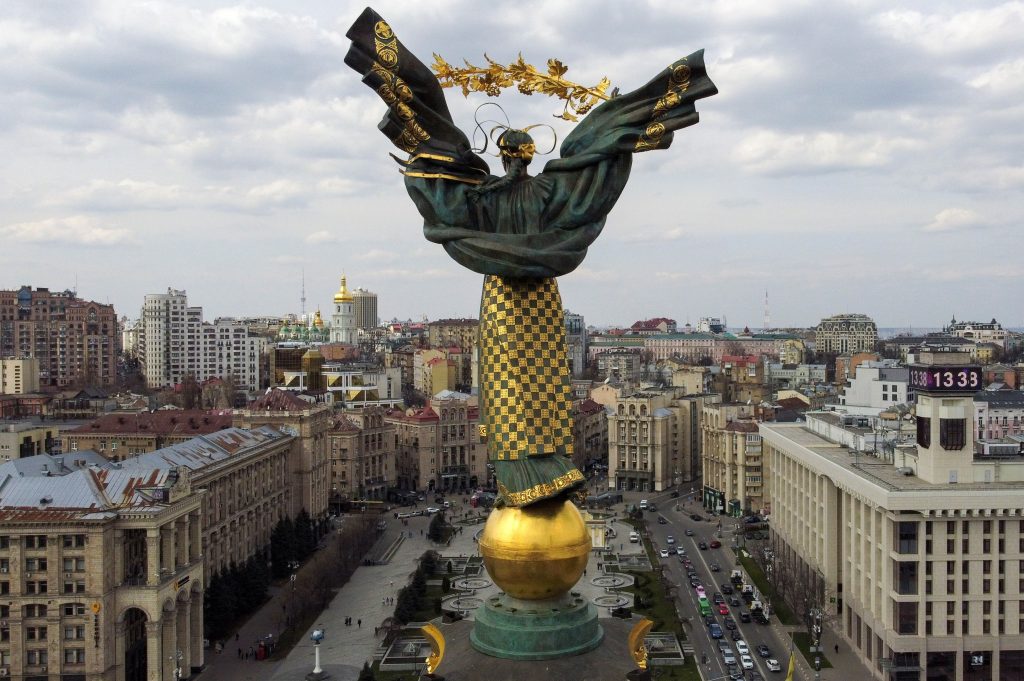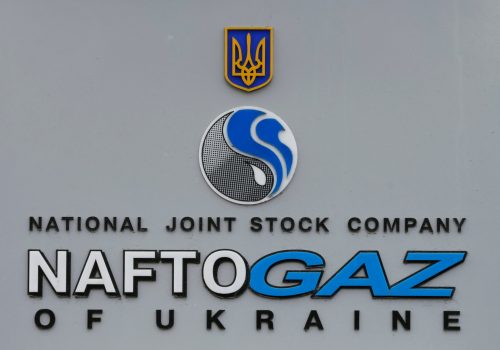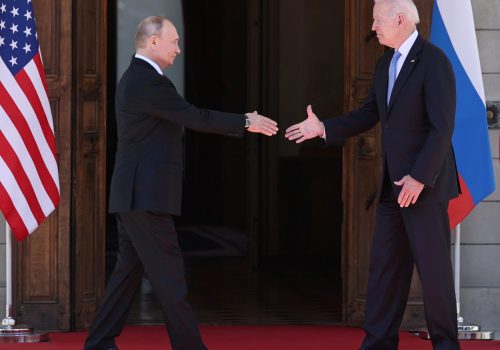Since it regained independence in 1991, Ukraine has exhibited systematic economic under-performance. The main driver behind this thirty-year record of disappointing growth is bad governance and, more specifically, corruption.
Comparisons of Ukraine’s economy since 1992 with neighboring Poland and Russia illustrate this problem. In 1992, GDP per capita in Poland was USD 2,459. By 2019, this had grown to USD 15,695. The corresponding figures for Ukraine are USD 1,418 in 1992 and USD 3,659 in 2019.
Even Russia’s growth record is significantly better than Ukraine’s, with GDP per capita at USD 3,099 in 1992 and USD 11,585 in 2019. Taking into account the undeniable costs of the conflict with Russia since 2014 and the damage caused by Covid-19 since 2020, Ukraine’s post-Soviet economic performance has clearly been unsatisfactory.
During his May 2021 visit to Kyiv, US Secretary of State Antony Blinken repeatedly called corruption the main enemy of the Ukrainian economy. It is hard to argue with this assessment. Corruption erodes the effectiveness of all government institutions and the state itself.
According to former Georgian president Mikheil Saakashvili, who currently heads Ukraine’s National Reform Council, the Ukrainian state budget loses over USD 37 billion every year due to corruption. This figure is close to a quarter of Ukraine’s annual GDP of USD 153.8 billion in 2019.
Fixed investment as a share of GDP was 17.6 % in 2018 and 18.0% in 2019. The global share was 23.6% of GDP in 2019, but the figure for many successful emerging markets was significantly higher. India’s number in 2019 was 27%, China 43%, Romania 24%, and Hungary 27%. To achieve its potential, Ukraine must generate and sustain a fixed investment share of GDP no lower than the high twenties.
A major boost to capital formation, absent a spontaneous matching rise in domestic savings, will have to be externally funded. However, without a dramatic improvement in the business climate, foreign investment, including FDI, will not be forthcoming. Neither will domestic investment. Indeed, foreign investors see buoyant domestic capital investment as an indicator of whether they should consider investing in a country or not.
Stay updated
As the world watches the Russian invasion of Ukraine unfold, UkraineAlert delivers the best Atlantic Council expert insight and analysis on Ukraine twice a week directly to your inbox.
Conventional wisdom in Ukraine holds that foreign investors will welcome the recently unveiled campaign against the country’s oligarchs. This will only be the case if it is pursued fairly and transparently as part of long overdue systemic reforms and does not turn into an attack on any large, successful company.
Official estimates by the Ministry of Economic Development and Trade in 2020 put 31% of Ukraine’s economy in the shadows, outside the official taxation and regulatory frameworks. This is three percent more than a year earlier and probably represents a significant underestimate. The Kyiv International Institute of Sociology put Ukraine’s shadow economy at 47.2 percent of GDP in 2018.
A large shadow economy means that the tax base is eroded. In this environment, regulation becomes completely “manual,” and is at the discretion of officials rather than rules-driven. In other words, the shadow economy is a corruption paradise.
To encourage additional investment, private property rights must be secure and enforceable in a transparent manner. This applies notably to real estate including agricultural land.
More generally, successful entrepreneurs in Ukraine are frequently shaken down by corrupt officials or vulnerable to corporate raids by politically connected parties. Deficiencies in the protection of private property rights are pervasive and need to be addressed urgently.
Regulation means discretion for officials. That makes it a fertile breeding ground for corruption. Clear and simple rules and maximal transparency in their application will minimize the scope for “manual” regulation and associated corruption. Regulation in the energy sector is no exception to this rule.
Eurasia Center events

Many sectors of the Ukrainian economy are dominated by monopolies. The best solution here is to introduce effective competition. There are very few natural monopolies, meaning industries in which high startup and other infrastructure costs, significant economies of scale relative to the size of the market, and other unavoidable barriers to entry make for a single provider of a good or service in an industry or location. Opening up fully to competition from the EU is in many instances the best solution here, including for the energy sector. Where appropriate, unnatural monopolies can be broken up or unbundled by the regulator.
Too many Ukrainian enterprises are state-owned. State ownership should be restricted to firms that produce pure public goods or services. The list should include national defense and law and order, but not Naftogaz, which should be privatized and turned into a regulated monopoly, with the hope and expectation that, if it is not broken up, external competition, mostly from the EU, will swiftly end its monopoly status.
Prices for all energy sources, including gas and electricity, should cover long-run social marginal costs, including the cost of capital. Without this, adequate investment, domestic or foreign, will not be forthcoming. If a credible enduring commitment to such a pricing structure can be made, adequate investment in the energy sector will be forthcoming and special arrangements like feed-in tariffs will not be necessary.
Ukraine is still an awfully long way from this. Neither gas nor electricity for households are priced with any reference to their economic costs, let alone their long-run social marginal costs. Although new projects are still being announced, the full potential of renewable energy in Ukraine cannot be realized if there is a large overhang of debt from the government’s failure to fulfill its commitment to investors.
By the end of July 2020, the Guaranteed Buyer (a state-owned monopoly) owed RES producers UAH 25.4 billion. Despite all the efforts of business and the expert community, as well as Ukraine’s international partners, provisions of the signed Memorandum of Understanding between RES producers and the state are not executed and debts remain unpaid.
Without radical reforms, energy blackouts will become a feature of everyday life in Ukraine in the years to come. The state will have to deal with the inherited debt by assuming it in full and paying it off. Ukraine should adopt competitive, full-cost pricing by integrating comprehensively into EU energy markets.
All users of energy, including household consumers of gas and electricity, should pay its full long-run social marginal cost. This is only acceptable if the tax-transfer system can ensure that such energy pricing does not lead to financial hardship for households. Reform of the tax-transfer system is therefore called for. If comprehensive tax-transfer reform is a bridge too far, the state could subsidize the energy bills of low-income households.
For Ukraine to achieve its economic potential, a number of major reforms are required. Tackling corruption across the board is a common denominator. The shadow economy must be reduced decisively. The tax-transfer mechanism must be simplified and made more transparent. It must be able to support an energy pricing system that allows all users (including households) to be charged the full long-run social marginal cost of energy. Monopolies should be minimized through unbundling or competition from the EU. Any remaining monopolies should be transparently regulated. Most state-owned enterprises should be privatized. Until corruption is confronted in a comprehensive manner, it will continue to prevent economic growth in Ukraine.
Willem Buiter is a Visiting Professor of International and Public Affairs at Columbia University.
Further reading
The views expressed in UkraineAlert are solely those of the authors and do not necessarily reflect the views of the Atlantic Council, its staff, or its supporters.

The Eurasia Center’s mission is to enhance transatlantic cooperation in promoting stability, democratic values and prosperity in Eurasia, from Eastern Europe and Turkey in the West to the Caucasus, Russia and Central Asia in the East.
Follow us on social media
and support our work
Image: The Independence Monument above Kyiv's Independence Square. April 6, 2021. (REUTERS/Valentyn Ogirenko)




